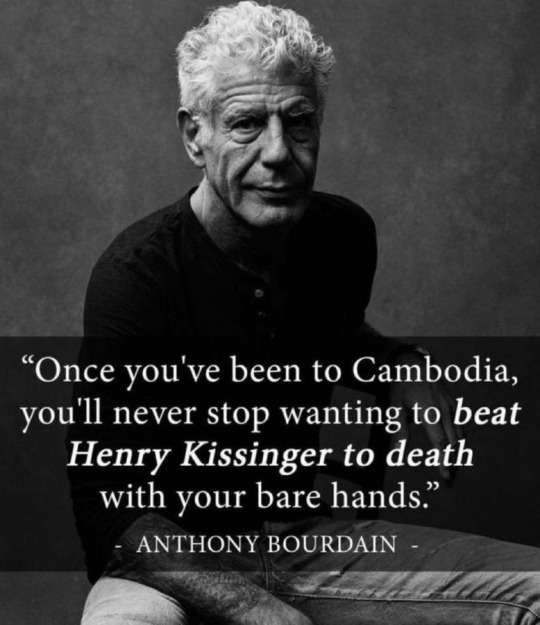#Death of a Party
Text
So, recently there was Twitter leaked fan cam footage of the club scene from All of Us Strangers (including kisses between Adam and Harry with Blur's Death of a Party) and today on the Aoustrangers Instagram Searchlight appears to have just said Fuck it, and released the scene themselves as an exclusive with Out Magazine. I'm going to put it under the cut in case anyone prefers to wait till they can actually see it within the context of the movie. (But no doubt there will be gifs everywhere momentarily, let's be real.)
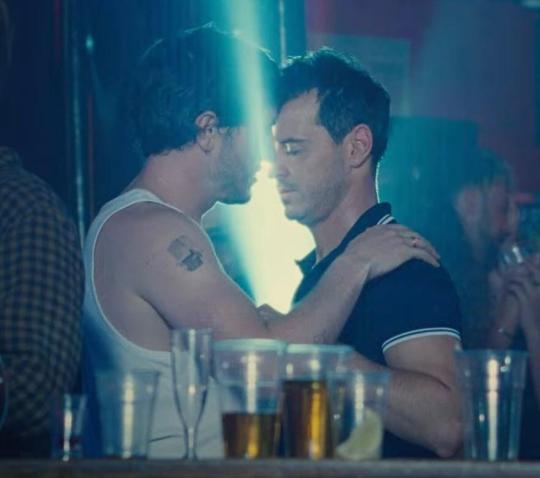
#andrew scott#paul mescal#all of us strangers#death of a party#blur#out magazine#all of us strangers spoilers
21 notes
·
View notes
Text
'So … did you cry? All of Us Strangers has finally been released in the UK after leaving cinemagoers in the US, and at various film festivals, in floods. It’s won seven gongs at the British Independent Film awards and is up for six Baftas, but no Oscars – whatever. For me, the film’s achievement is the way it’s managed to talk about love, grief and loneliness in such a powerful and original way. I first saw it at the end of September when it hit me like a ton of bricks, and I can honestly say that I’ve thought about it every single day since.
When I interviewed writer-director Andrew Haigh before Christmas, he told me that while he had designed the film to be increasingly dreamlike as it went on, the plot underneath was logical. Nonetheless, he said that he was open to other interpretations. So let’s dig into them, shall we?
When did Harry die?
At the end of All of Us Strangers, Adam (Andrew Scott) returns to his flat after meeting the ghosts of his parents for the final time. He goes to Harry (Paul Mescal)’s apartment, which he’s never entered before, and is knocked back by the smell of a decomposing body. Then Harry’s ghost appears, holding the empty bottle of whisky he was drinking when he came to Adam’s door looking for late night company at the start of the film.
It seems reasonable to assume that after being rejected by Adam, Harry went back to his flat, finished the whisky, took ketamine (Adam finds a baggie) and died of a drug and alcohol overdose, meaning that as well as reuniting with his parents who are ghosts, Adam has been having a love affair with one too.
So, about those sex scenes …
Adam is only able to let his guard down enough start his relationship with Harry once he confronts his past and meets the ghosts of his parents – after he’s first come back from Croydon, he gets together with Harry after their discussion about the terms “gay” and “queer”.
After Adam has come out to his mum (Claire Foy) back in Croydon, he has sex for the second time with Harry, who has encouraged him to take a bath because he’s feverish. It’s never made explicit in the film, but Haigh told me that Adam starts to feel unwell after his mum mentions Aids, and in the bath he tells Harry (who has no such hangups) that for years he had been too frightened of the disease to have sex with anyone. Later on in the film, as Adam runs through the tube train tunnels looking for Harry, there are old public information posters about Aids on the walls. In order to break out of his repression and fall in love, Adam has to lay to rest his terror of catching HIV.
What happens in the club?
Shot in the Royal Vauxhall Tavern in London, one of Haigh’s old haunts, this is the only big musical moment that isn’t set to an 80s hit – the soundtrack to Adam’s ketamine trip is Blur’s woozy Death of a Party, from 1997. Haigh told me that there’s a subplot buried within All of Us Strangers in which Adam manages to break out of his loneliness and live as a happily out gay man – so perhaps this is the way he would have gone out partying in his early 20s, in the 90s. While he’s high, Adam imagines himself and Harry having the long-term relationship he has yearned for – though sadly it doesn’t seem to last, with Harry gliding past him in the club after locking eyes with someone else, before Adam wakes up screaming.
What’s going on in the diner?
All of Us Strangers takes place in a mysteriously unpopulated world – a metaphor for Adam’s isolation. He and Harry appear to be the sole residents of their tower block, and Adam and his parents are the only guests in the diner where they have their last encounter, a childhood outing Adam never got to experience. The only other person is the waitress: presumably she can’t see Adam’s mum and dad, since she wonders whether he’ll be able to finish the family meal he’s just ordered.
Adam’s mum asks him whether she and Adam’s dad died quickly after their car crash – he tells her that they did, even though we know that his mum took days to die, a white lie that I felt was Adam kindly parenting his parents, shielding them from harsh truths they didn’t need to know in a moment of mature understanding.
The line that really got to me, though, was the part when Adam’s dad (Jamie Bell) tells him that he’s proud of him, and when Adam asks why, given that he hasn’t done anything, his dad replies, “Well you’ve survived. It can’t have been easy.” Finally, his parents recognise his sadness and pain, and the effort it’s cost him to keep going, even if he doesn’t have a wife, kids, a successful career or any of the other trappings of heterosexual manhood to show for it.
And what the hell is the ending about?
In the last scene of All of Us Strangers, Adam and Harry cuddle up together on a bed. Harry asks Adam to put on a record, and without him doing so, The Power of Love by Frankie Goes to Hollywood comes on – Adam was watching an old Top of the Pops performance of it from 1984 when Harry came knocking at the beginning of the film. The song contains the deeply romantic declaration “I’ll protect you from the Hooded Claw / Keep the vampires from your door”; in a (to him, unconscious) allusion to the lyrics, Harry had told Adam, as the older man turned him away, “there’s vampires outside my door”.
Now Adam and Harry can truly love, console, protect and care for each other, but it’s a brutally bittersweet image as it’s happening in some kind of supernatural realm, not real life. As the camera gets further and further away from the spooning lovers, it depicts them as one of a constellation of stars in a night sky, perhaps the other lonely strangers of the film’s title.
So is Adam also dead? I don’t think Haigh means us to think that he is. I think the image says that love is strong enough to smash the boundary between life and death, and that it’s our only defence against the infinite darkness that surrounds us, something Adam has come to understand after spending a lifetime running away from his own desperate need for human connection. Now, I think I may have something in my eye …'
#Andrew Scott#Paul Mescal#Andrew Haigh#All of Us Strangers#British Independent Film Awards#BAFTAs#Royal Vauxhall Tavern#Frankie Goes to Hollywood#Death of a Party#Blur#Jamie Bell#Claire Foy#Oscars#Top of the Pops#The Power of Love
9 notes
·
View notes
Text
youtube
That song... used to perfection.
#blur#death of a party#all of us strangers#aous#not talking about the lyrics but the weird shifts#Youtube
8 notes
·
View notes
Text
The best Blur songs are when Damon is a strung out suicidal kitten
#dhdjdjsndb#my blorbo#txt#blur#damon albarn#Beetlebum#battle#caramel#strange news from another star#death of a party#no distance left to run
26 notes
·
View notes
Text
Blur performing Death Of A Party after introducing the Torres Martinez Cahulla Bird Singers, who sang a traditional song as an intro before this.
#music#Blur#Blur band#Coachella 2024#Coachella#Death of A Party#Torres Martinez Cahulla Bird Singers
4 notes
·
View notes
Text
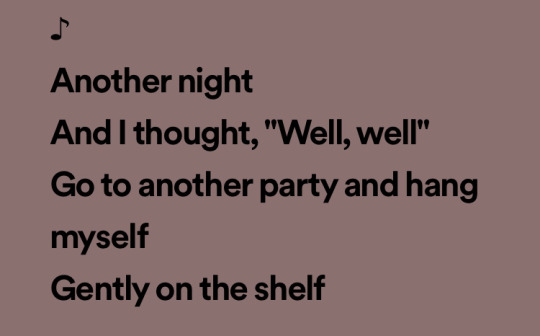
Death of a Party - Blur
2 notes
·
View notes
Text
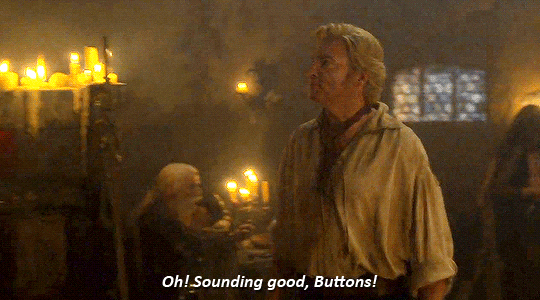

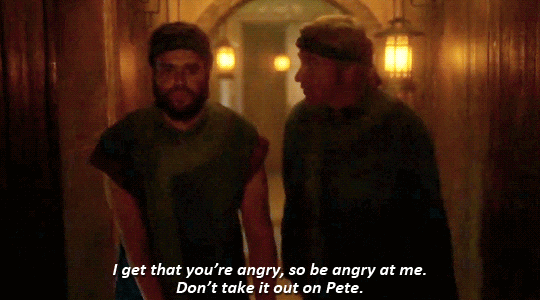

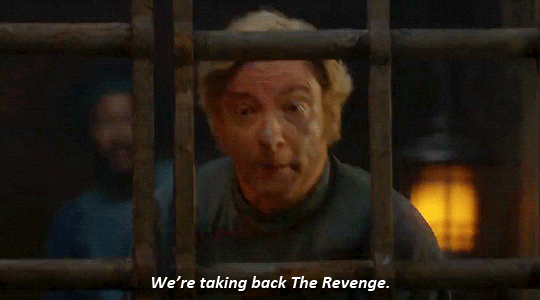
Stede + Being a Wonderful Dad Captain
for @stedebonnets
#OFMD#Our Flag Means Death#OFMD Season 2#OFMD S2 Spoilers#Stede Bonnet#Rhys Darby#The Swede#Buttons#Lucius Spriggs#ofmdedit#ofmd gifs#ofmdgifs#ofmdsource#ofmdblog#ofmddaily#Edit#HAPPY BIRTHDAY DEAR ARRRAAAAA#wanted to give you stede being so supportive and kind because YOU'RE always supportive and kind hey gottem#apologies if i'm a bit late to the party for your time zone but WHABAM HERE WE ARE ANYWAY#stede taking a bit more leadership all the while maintaining his kindness is Stabbing Me. In the Earhole. With a SKEWAH#btw#if you even care#SHDJKLSDJDFD
6K notes
·
View notes
Video
youtube
2:12 AM EDT May 29, 2023:
Blur - "Death Of A Party"
From the album Blur
(February 10, 1997)
Last song scrobbled from iTunes at Last.fm
File under:
Britpop Bands Making a Play for that Lucrative American
College Radio Market Sector
---
1 note
·
View note
Text
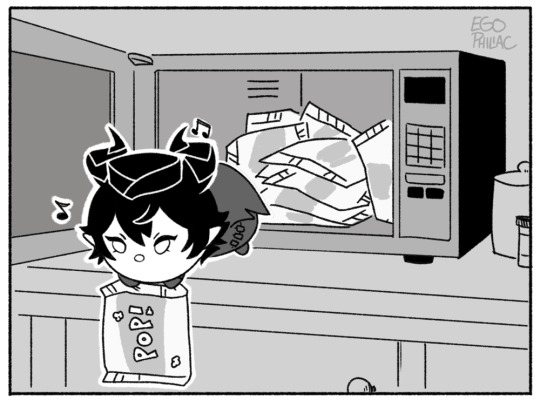

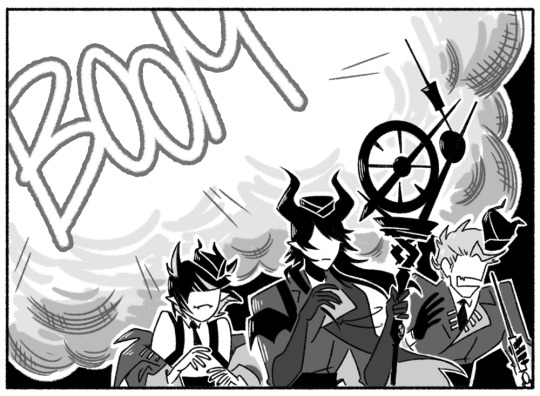
tsum events really are just the best, huh
#art#twisted wonderland#twisted wonderland spoilers#tsumsted wonderland#to be fair this is from mal's card story so it's more...event-adjacent#i-it still counts right#poor malleus tsum is having such a time#first it blows up the kitchen and then it almost gets spin-cycle'd to tsum-death#the poor little guy just wanted to help with the party! it was trying its BEST 😭#and instead it accidentally recreated every other tuesday from my college days#i am so genuinely delighted to read two entire chapters of malleus bragging about knowing how to use household appliances#(he knows what he's doing! he READ the MANUAL)#(you know that manual has copious notes covering the margins in perfect copperplate)#and the callback to his dorm ssr story. perfect.#we all knew this was going to end in malleus punching a washing machine into smithereens#i'm disappointed that the next part is probably just going to be a fun party or whatever#and not malleus showing off how close he is to finally mastering the toaster#twst please where is my spinoff game where we have to help a dragon fae prince learn how to do household tasks#i have an indescribable need to see malleus attempt to use a vacuum#he is very enthusiastic and also very stupid and we love him for it
2K notes
·
View notes
Text
Cinematographer Jamie Ramsay shared a behind the scenes video from the filming of the club scene in All of Us Strangers with Andrew Scott (Adam) and Paul Mescal (Harry) featuring the song Death of a Party by Blur.
🎥 Jamiedramsaycinematography
tw flashing images
#andrew scott#paul mescal#andrew haigh#all of us strangers#jamie ramsay#blur#death of a party#flashing#tw flashing
27 notes
·
View notes
Text
'A writer is an essentially lonely person. Someone, in fact, who usually prefers to be alone. Except when they start to realize that perhaps they became a writer precisely because of that inherent loneliness in the first place. This seems to be the case for the mononymous Adam (Andrew Scott), living practically alone in a new building that still has yet to lease out any of its apartments to fresh tenants. The apartment tower seems to lie just out of reach of London, though Adam and his soon-to-be-lover, Harry (Paul Mescal), keep referring to how they live “in” London. Indeed, Adam admits that he’s the last of his friends to remain “in” the city, with everyone else surrendering to the inevitable move to the country, where they can properly raise their families. Adam, being a gay man, automatically counts himself out from “that life.” The so-called conventional one, that is. Because, even for as “modern” as these times are supposed to be, there are still so many judgments and limitations projected onto the LGBTQIA+ community. And for a man of Adam’s generation (X), there remains so many lingering insecurities about his sexuality as a result of a childhood spent not only in the “wrong” era to be gay, but the wrong place as well. For Thatcher-run Britain wasn’t exactly open and inviting to the homo set (any more than Reagan-run America was).
Which is why homosexuality started to feel like an “underground movement” rather than a mere sexual preference. The illicit nature of it, particularly in the late 70s and early 80s, served as a means to condition many gay men to get off on the secrecy and anonymity aspects of it more than the sex act itself. Not quite knowing how to “function” sexually once things became slightly less taboo. This is the transitional mind fuck Gen X gay men were subjected to, enduring the repression of sexuality in the 80s, the AIDS scare that lasted from the beginning of that decade and well into the mid-90s and the sudden about-face toward total gender and sexual fluidity in the twenty-first century. It would be enough to give anyone sexuality whiplash, particularly a British person, with their background so fundamentally steeped in stodginess and restraint. This is the place Adam (whose biblical name feels deliberately tongue-in-cheek [no BJ pantomime intended]) is coming from. And it’s compounded by the fact that he’s partially “stuck” at the age he was when his mother (Claire Foy) and father (Jamie Bell) both died in a car accident on Christmas Eve of 1987 (this year is also significant as it’s when the book the film is based on, Strangers by Taichi Yamada, was released).
Our introduction to Adam is one of palpable loneliness as writer-director Andrew Haigh (known for Weekend and Looking, among other things) shows him staring longingly out of his floor-to-ceiling glass window at the outline of London. Which is, again, just beyond his reach. The city hasn’t fully expanded to his neck of the woods quite yet, though with rising prices and a shortage of housing, London will make it to his “outskirts” soon enough. The building, in fact, was actually shot in East London’s Stratford. Which is at least forty-five minutes’ worth of travel into Central London. His perennial position as an outsider is thus solidified to viewers geographically as well. This “outsiderness” extends even to his chosen profession as a writer (though, as he says, not a “proper” writer, but one for TV). This being the most voyeuristic kind of profession there is. A skill rooted in observation and recording. Never being quite “in the story” yourself, though constantly trying to put “a version” of who you think you are in it. That Adam chooses to write scripts wherein he can control the narrative also has Psych 101 implications. Since he couldn’t control the death of his parents or the way in which he was treated by homophobes in his youth. But he can control everything in the scenarios he comes up with on the page.
Unlike trying to control Harry’s direct approach one evening after seeing Adam so many times staring up at his window from down below. This being the umpteenth time he’s done so after a false fire alarm goes off and Adam is the only person (out of two) foolish enough to fall for it by vacating the building. Knocking on his door once Adam goes back inside and essentially begging to, er, enter, Harry makes a final effort to win Adam over by riffing on Frankie Goes to Hollywood’s “The Power of Love” with the line, “There’s vampires at my door.” This specifically alludes to the lyrics, “I’ll protect you from the hooded claw/Keep the vampires from your door.” While Harry likely wouldn’t have any idea what that song is (if we’re to go by Mescal’s own cusping between millennial and Gen Z age of twenty-eight), it’s nice to think that he could be attuned enough with British pop music’s past to make such a casual reference. To that end, there is a moment where he tells Adam he wants to “watch old episodes of Top of the Pops from before I was born” with him. Sit on the couch eating takeaway together like a right proper couple that’s surrendered fully to the dull comfort of monogamy. Because, yes, even the gays have settled for it by now. Gotten used to the idea that monogamy is for everyone. Even though, as Henry Willson (Jim Parsons) in Hollywood put it, “Sure, holding a guy’s hand in public, walking down the street, you know, you wait for a brick in the back of the head. It doesn’t come. Well, then, before you know it, your guy wants to play house. Have you ever spent a Saturday picking out some cheerful, daffodil-colored linoleum for the kitchen? I have, Ernie. And it is enough to make you wistful for the days of secretive sodomy.”
Adam is not necessarily “that type of gay,” but he is very clearly still imbued with the “gay guilt” of his generation. This being one of the reasons why he refuses Harry’s initial forward advances. That and, well, his heart sort of had to close entirely after his parents died. An automatic defense mechanism against ever attaching again. What with getting so badly burned the first time around via every person’s most formative attachment: the one with their parents. This is why Adam seeks so desperately to return to the past—the only known period in his life where he still had two (theoretical) protectors.
While Adam tries to wrap himself as much as possible up into the past by writing about it in screenplay form, he doesn’t seem to realize that he’s been trapped in it for quite some time. Perpetually locked inside that traumatic period of his life. Not just because of his parents’ death, but because losing them, in a certain sense, kept him frozen in a false identity. That is, a false hetero identity. One that didn’t allow him to ever fully be himself, or rather, be known as his true self. Because, although it’s “liberating,” in a way, to lose your parents and be forever free of any judgments they might have over you, it also means that you’ll never know if that formerly hidden part of yourself might have actually been accepted and embraced. As Haigh stated, “What I’ve always been interested in doing, and especially with this [film], is talking about queerness in relationship to family, and how complicated it can be in relationship to family…especially if you grew up in a generation of the 80s and into the early 90s, where it was very different than it is now—thank God.” And yet, there are times when it doesn’t seem that different. And the fact that a still-young Harry can recall his own childhood being rife with anti-gay sentiments (“It’s probably why we hate [the word] ‘gay’ so much now. It was always like, ‘Your haircut’s gay.’ Or, ‘The sofa’s gay.’ ‘Your trainers are gay, your school bag’s gay’”) speaks to how “drastic change” didn’t occur until very recently (something the present generation of twinks takes endlessly for granted).
This is part of why, when Adam tells his mother about his sexuality, she can’t believe he would actually “choose” such a life. Such a lonely life, at that. Still trapped in her 1987 Britain mentality, she asks, “Aren’t people nasty to you?” He assures, “No, no. Things are different now.” She asks again, “So they aren’t nasty?” He shrugs, “Not allowed, anyway.” But, of course, as Trump supporters (and Trump himself) have shown, people always find ways of getting around things that “aren’t allowed.” When Adam also informs her that men and women can marry the same sex now, she balks, “Isn’t that like having your cake and eating it?” Turns out, his confession to Mother isn’t going as well as he thought. Is actually bringing him a worse kind of pain than before. Compounded by her saying, “Oh God, what about this awful, ghastly disease? I’ve seen the adverts on the…on the news and with the gravestone.” “Everything is different now,” he insists again. Or so we would like to believe…
In an interview with Time, Haigh addressed one of the criticisms the LGBTQIA+ community has accused the movie of, which is that it reemphasizes the notion (which was only just starting to slightly go away) that being queer is the most isolating and alienating experience a person could have. But Haigh feels differently about the underlying message of his film, stating, “I understand that that can be an interpretation. Personally, I don’t feel that. There is hope in the fact that he has understood that, basically, he is capable of being in love and being loved and being there for someone else that might need him in that moment. By the end of the film, to me, it is basically saying that what is important in life is love in whatever way you manage to find that, whether it’s in a relationship, whether it’s with your parents, whether it’s with a friend. You go through life finding love, losing love, and finding it again.” And Adam has found it again, however ephemerally, with his spectral parents.
As for Adam’s mother, the more she thinks about it, the more his gayness makes sense to her. He was so “odd” and “sensitive,” after all. And apparently always trying to run away. When she asks where he was trying to run away, he tells her that he reckons London. Making him yet another Bronski Beat cliche. Luckily, Haigh stops short of featuring “Smalltown Boy” in the movie, instead opting for a “less overt” queer band in the form of Pet Shop Boys. Who have never much talked about their sexuality (why bother when all of their music is dripping with the subject and “lifestyle”). But as recently as their latest single, “Loneliness,” it’s clear the duo knows all about the distinct kind of loneliness that a man such as Adam suffers from. A loneliness that his mother is also convinced gay men are more prone to, even if, as Adam asserts, “Everything is different now.”
The past itself is, alas, as much of a ghost as his parents are. And it’s a kind of haunting that Adam seems to relish for its unique sting of pain-pleasure. For example, listening to Fine Young Cannibals’ “Johnny Come Home” as he writes, “EXT. SUBURBAN HOUSE, 1987” on his computer, it’s easy to see that the past is the present for Adam. As it is for many other people who prefer not to admit that to themselves. Even Adam tries not to fully admit it aloud, brushing aside Harry’s heartfelt apology when he finds out that Adam’s parents died in a car accident just before he turned twelve. “It was a long time ago,” he tells Harry. “Yeah, I don’t think that matters,” Harry replies. And it doesn’t. For trauma and woundedness never really go away. Especially when ceaselessly suppressed.
And yes, listening to the music from his childhood is a key part of crawling into the “comfortable” pain of his youth. Comfortable because it is familiar. Seeing his room just as it was when he was a preteen leads him to thumb through records like Erasure’s Circus and Frankie Goes to Hollywoood’s Welcome to the Pleasuredome (which “The Power of Love” appears on). Even when Adam goes out to a club with Harry, the song playing for the dance floor, Joe Smooth’s “Promised Land,” is straight out of 1987. Everywhere he goes, that year, that time in his life haunts him. At one point during post-coital candor, he muses to Harry, “Things are better now, of course they are, but…it doesn’t take much to make you feel the way you felt.” It reiterates what he already told his mother, but with the admission that, if you grow up a certain way, are conditioned to have a certain “look over your shoulder” response to people, it doesn’t ever truly dissipate. Even in the late 90s, when things were starting to shift more palpably, especially with AIDS “calming down,” a Gen X man like Adam was never truly going to feel “safe” enough to be “himself.”
Talking of the 90s, Haigh’s decision to include 1997’s “Death of a Party” by Blur as the soundtrack to a very trippy portion of the club sequence is also pointed. For, in addition to Blur speaking about the end of Britpop’s reign, this song has long been regarded as a metaphor for AIDS. After all, gay men were only too happy to party in the late 70s and early 80s…until an unknown disease, a “mysterious illness” started making people—primarily “fags”—drop like flies. So much for the “party.” A word Madonna famously included as part of an AIDS awareness insert placed among the liner notes of her Like A Prayer album with the phrase, “AIDS Is No Party!” In other words, don’t think you can go around fucking freely as you used to in the days before the novel virus. With AIDS came yet more cannon fodder for suppression. To turn inward and avoid one’s desires altogether. As Adam seemed to do, telling Harry, “I’d always felt lonely, even before [my parents died]. This was a new feeling. Like, uh, terror. That I’d always be alone now. And then, as I got older, that feeling just…solidified. It just, uh, it did not…” He motions toward his heart after trailing off, finishing the thought with, “…here all the time.” Harry looks at him with teary-eyed empathy, prompting Adam to continue, “And then losing them just got tangled up with all the other stuff. Like being gay. Just feeling like…the future doesn’t matter.” Of course, it also felt like it didn’t matter when, as a gay man, death was all around. Pervasive. Perhaps, in some sense, Adam could even associate his parents’ death with the “gay disease” that caused everyone who came into contact with “queers” to die.
Getting the chance to tell his parents—even if only their ghosts—who he really is proves to be, if not “cathartic” then at least a release. When Adam’s father tells his son that he’s proud of him, Adam replies, “I haven’t done anything to be proud of. I’ve just muddled through.” His father rebuts, “No, but you got through it. Some tough times, I’m sure, and…you’re still here.” Even this, too, feels like a nod to the generation of gay men who were not only mercilessly ridiculed, but also forced to watch so many of their own fall prey to the cruelest kind of death. To survive through something like that would, of course, serve as a lingering trauma unto itself. Indeed, there are times when the viewer might think that Adam himself is a ghost who doesn’t know it yet (Bruce Willis in The Sixth Sense-style), that maybe his telltale “fever” was a symptom he had while dying of AIDS. But no, that’s not the Shyamalan-oriented element here. Instead, Adam is subjected to a much more heartbreaking fate.
One that only Frankie Goes to Hollywood (“The Power of Love” is a subliminal essence during the tripped-out club scene as well, its presence seemingly omni—a punctuating motif to cut through the loneliness) can try to even vaguely soothe. The band’s lead singer, Holly Johnson, was himself diagnosed with HIV in 1991. But it was even before then that he sang on “The Power of Love,” “Dreams are like angels/They keep bad at bay, bad at bay/Love is the light/Scaring darkness away/I’m so in love with you/Purge the soul/Make love your goal.” Even when you’ve been burned in such an inexplicably horrible way by it in the past.'
#All of Us Strangers#Frankie Goes to Hollywood#The Power of Love#Andrew Haigh#Blur#Death of a Party#LGBTQIA+#Andrew Scott#Paul Mescal#Claire Foy#Jamie Bell#Strangers#Taichi Yamada#Weekend#Looking#Pet Shop Boys#Always on My Mind#Fine Young Cannibals#Johnny Come Home#Joe Smooth#Promised Land#Erasure#Circus#Welcome to The Pleasuredome#Holly Johnson#AIDS
3 notes
·
View notes
Text
Playing Dead AU
Guyyyyyyssss
I just had a random shenanigans idea...
Now hear me out.
You know those murder mystery parties right? The ones where people get together, an actor plays dead, and the groups have to figure out who did it.
Well what if.
Danny takes a summer job as the body/actor of the victim for those parties and actually is commented on being the best 'very lifelike dead body' actor and hey at least his 'medical condition' (halfa) is finally being useful for something (besides you know, fighting ghosts) he can even go hours without moving (or breathing) once he's dead so he doesn't ruin the immersion for party goers.
Anyways, what if he gets a job for a rich people's party, you know something novelty for the wealthy to have fun with, maybe it's the Wayne's hosting a party or maybe someone else and they invite the Wayne's. And the company he works for sends him to Gotham. He gets there, helps set up the clues and the other actors, etc etc.
Then the guests start showing up, Danny acts like the star of the show he is and then the lights cut out, he screams (very realistically), and 'dies' before the lights come back on. As some players come up to inspect his body however he doesn't notice how some take his pulse and actually fully think he's dead.
Point being, Danny is the 'dead' body for the murder mystery, goes to Gotham for a gig, 'dies' and the batfam think they have a legit murder happening.
#danny phantom#danny fenton#dp x dc#blue rambles#crossover#writing ideas#random idea#danny phantom dc#dp x dc crossover#shenanigans#just all the shenanigans#Danny takes his 'deaths' as naptime and doesn't notice he stops breathing#and hes naturally cold#the batfam thought this was going to be a normal fun semi-normal night at a party#but... uhh what do you mean you cant find his pulse Tim??#hes not breathing?#what do you mean you can sense death around him Jason!
6K notes
·
View notes
Text
The 1998 Glastonbury performance of Death of a Party >
5 notes
·
View notes
Text
#my polls#random polls#tumblr polls#poll time#poll game#polls#gaming poll#rpg horror#rpg maker#rpg maker horror#rpg maker game#ib game#ib kouri#the witch's house#mad father#yume nikki#misao#ao oni#off (game)#corpse party#angels of death#angels of slaughter#the crooked man#the forest of drizzling rain
1K notes
·
View notes
Text
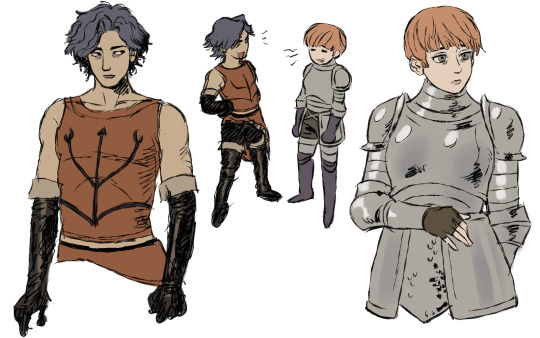
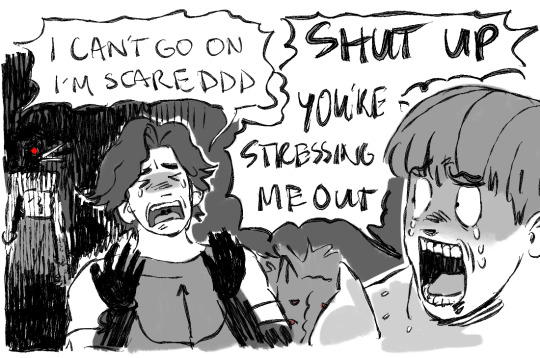
Welcome to the funger dungeons
#fear and hunger#drawing#Just started it and I'm sick to death of it already But I'm having fun ngl#rn my party is d'arce moonless and cahara
8K notes
·
View notes

